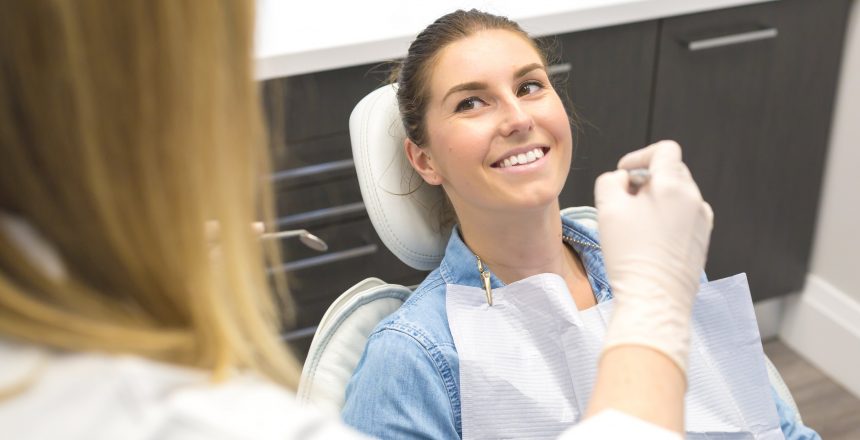A lot happens in your mouth at night. If you’re like many Americans, you grind or clench your teeth, which can cause problems, not just in the mouth. Bruxism, the official name for involuntary teeth clenching or grinding, affects 10% of adults and 15% of kids, according to the American Sleep Association. You may not know you’re doing this, but your partner might hear it at night, and your dentist surely can see the results. While you may not be able to stop the underlying bruxism, as it often happens at night when you’re sleeping, you can get a night guard, a custom bruxism appliance, to alleviate the negative side effects of the clenching and grinding.
What is a night guard?
A night guard, or bruxism appliance, is a transparent, thin device you wear over the biting surface of your teeth, when sleeping. It prevents your top and bottom teeth from touching. Dental offices like Klement Family Dental, make them for patients frequently. They are custom-molded to your teeth, so they fit in your mouth without being bulky or uncomfortable.
What health issues does a night guard prevent?
- TMJ: Have you heard of temperomandibular joint disorder? It affects the muscles used to chew, and the joints connecting your jaw and skull. While the disorder can be caused by many things, one cause is bruxism, as the pressure from clenching or grinding can affect the mouth and jaw structures, including muscles, nerves, ligaments and teeth.
- Teeth wear: Likely you’re not going to notice that your teeth are wearing down, but your dentist can tell. When you come in for regular cleaning and maintenance, the hygienist and dentist inspect your teeth. When the protective enamel wears down, the tooth underneath is exposed and more prone to cavities, discoloration, fracturing, failing restorations and other problems.
- Tooth pain: If you experience tooth pain, and it’s not from cavities, there’s a good chance it’s from bruxism. Bruxism can cause tooth sensitivity, often related to enamel damage, or a fracture you can’t see.
- Tooth or crown cracking: The clenching and grinding can cause enough pressure on the teeth to crack or fracture (break) the actual tooth or crown. While the teeth are designed for the pressures of eating and biting, they’re not meant to sustain additional pressure from long-term clenching or grinding. This action can harm teeth, causing fractures or cracking.
- Chronic headaches: Sometimes also known as tension headaches, chronic headaches can be caused by teeth clenching or grinding. If you frequently wake up with a headache, consider bruxism as a possible cause. People clench or grind their teeth at night, and the pressure on the jaw can cause headaches.
While night guards are available over the counter, the ones made in dental offices are higher quality, custom fit and usually more comfortable and durable and more effective in alleviating the symptoms of bruxism. They are made after taking an impression of your teeth, and sending that mold to a special laboratory, resulting in a custom appliance.
If you have any of the issues mentioned here, or just need a regular maintenance and cleaning visit, contact us. We can help you determine if a night guard for bruxism is right for you.
